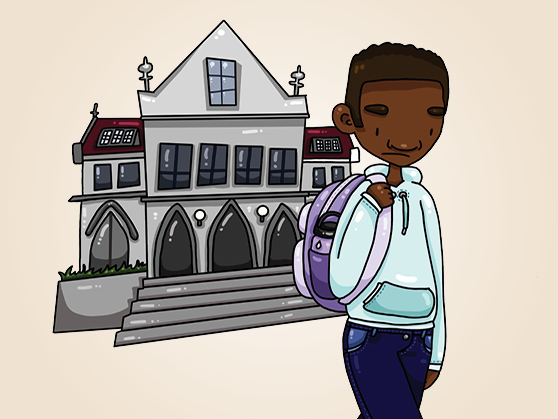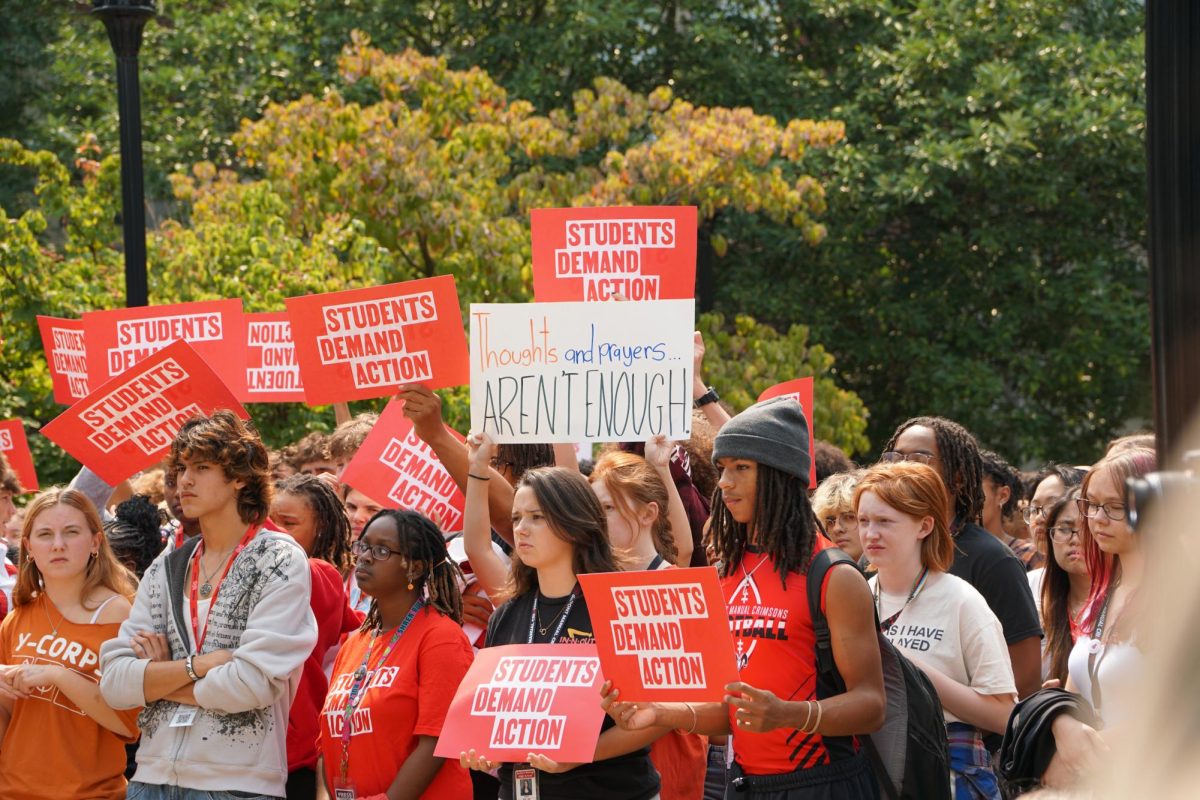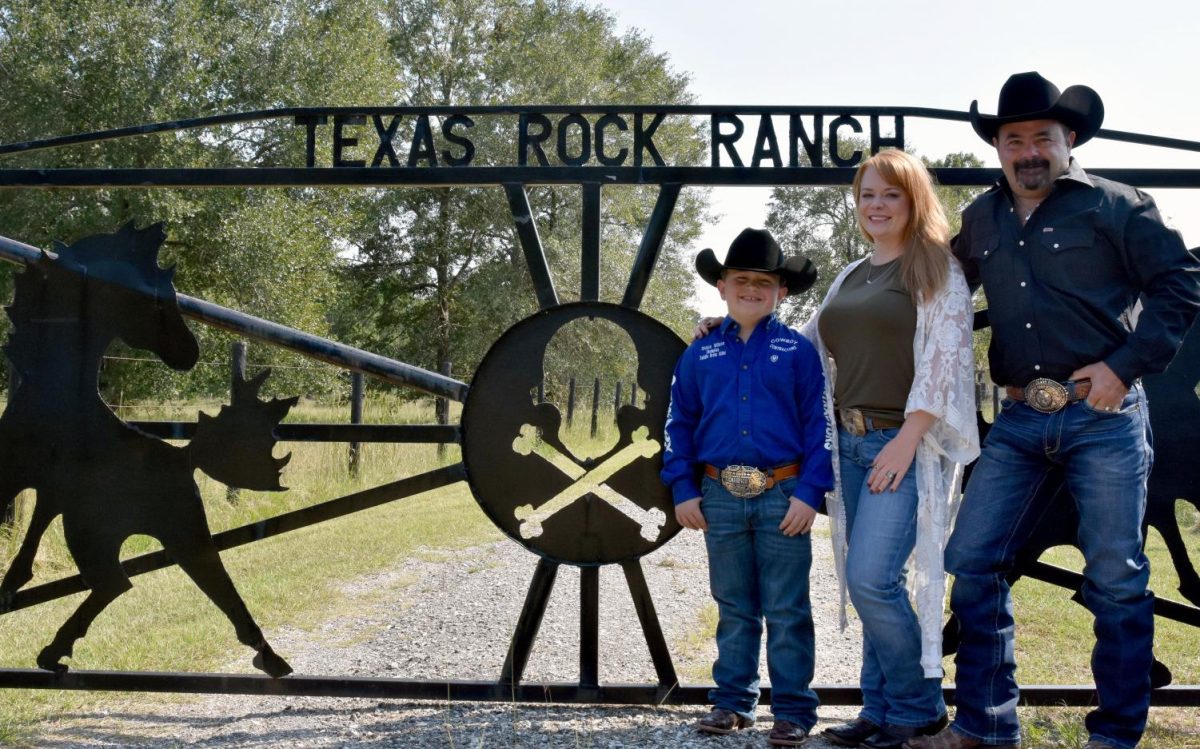Leaving Lab: Black students say school environment is unwelcoming

Dalin Dohrn
RACIAL MISTREATMENT. Black students say microagressions and Lab’s environment devalues their Black identity, contributing to decisions on whether to leave the school or stay.
December 9, 2022
About 9% of students at the Laboratory Schools are Black, but throughout the 2021-22 school year, the number of Black students who withdrew from Lab was 17%, outpacing the overall enrollment.
For many Black students, race significantly impacts their experiences at Lab to the extent that some leave and others consider leaving because they say Lab’s environment is not welcoming and inclusive, while a few say they do feel welcome.
Jordan Rodgers left Lab at the end of ninth grade in 2020 and recalls a situation that tested her comfort with her Black identity.
“I used to get passed a note that said ‘N-word pass’ that someone asked me to sign,” she said, adding that she tried to get teacher support but was told she was being distracting and disruptive. “This is one of the more subtle forms of disrespect I experienced.”
She said many of her peers did not always take her seriously and felt like she was constantly trying to prove herself to her peers.
Jordan ultimately decided to transfer to Whitney Young Magnet High School because she wanted a larger Black student population and a safer place to express her Black identity.
“My experience wasn’t necessarily bad, but there is definitely comfort in looking around a classroom and seeing people that look like you, and that’s not something I really got at Lab,” she said. “[Whitney Young] does have a bigger Black community and more diversity.”
Similarly, Kinsey Smith, who left Lab after eighth grade in 2020, decided to transfer because she was looking for a larger Black community for her high school experience. She now attends Oak Park and River Forest High School in suburban Oak Park.
Kinsey said she did not feel valued as a Black woman in the classroom at Lab.
“I would say 50% of the reason I left was because of my race. I felt like I was losing sight of who I was,” Kinsey said. “I was obviously Black, but I felt I had to almost be more like my white friends to fit in. Even though I did like Lab, it felt like I wasn’t appreciated by teachers as much as the white students.”
Jordan and Kinsey enjoy their new schools and feel more in tune with their Black identity.
Malacai Sanders left Lab at the end of the 2021-22 school year, partially due to racial mistreatment, he said. He is now a junior at Kenwood Academy High School.
In a series of text messages to the Midway, he wrote that he believes he was treated differently than white students.
He wrote, “I was sent to the principal for having a snowball fight with one of my friends, and when I went back outside, the white children were throwing snowballs, and nobody got in trouble.”
Malacai indicated Lab needs to do more to support Black students but is unsure how.
“I can’t say I’ve talked to a Black member at Lab that hasn’t discussed leaving or heard them talking about their parents wanting to move them out of the school,” he wrote, “so honestly I’m not sure what support Lab could put in.”
Echoing Malacai’s sentiment, current U-High senior Donovan Miller considers leaving Lab “every single day.” He said the school was made and established on white values.
“If I’m in my neighborhood and I’m just around all Black people, my time there is gonna be so different than it is at Lab. There’s just so much more understanding and there’s less of a burden, to try to explain certain things,” he said. “I’m not saying I just prefer to be in only Black spaces, or only spaces where there are people of color, I’m just saying that Lab does not allow for complete self-expression as a Black person.”
Donovan said people still treat him with respect, but a lot of the discomfort he experiences stems from microaggressions.
Like Donovan, junior Katie Williams said she experiences a lot of microaggressions at U-High and has observed themes of tokenism, which have led her to consider leaving the school. She gave an example of opportunities such as internships.
“If I were to say, ‘Lab has picked many Black students’ or ‘I am surprised that I am the only Black student chosen,’ I have had students say to me, ‘I am not surprised.’ They say, ‘They probably only chose you because you are Black,’” Katie said. “This devalues all of the work I have put in. It puts me in this imposter syndrome of ‘Am I worthy enough?’ I think this is a common theme for many students.”
In a series of interviews with the Midway, multiple Black students shared details of how they are treated differently not only around school but also in the classroom, such as in group projects and discussions.
Senior Lusia Austen said Lab’s culture tends to deny the existence of racial mistreatment.
“Lab has a serious problem with what I would say is ‘racial locker room talk,’ where it’s a sort of underlying culture teachers like to avoid,” she said. “But if you’ve ever heard a group of boys having a conversation on the second-floor lounge, you know it exists.”
Unlike her peers and despite her negative experiences, Lusia has not seriously considered leaving Lab.“I would say it’s affected my time, but not in such a serious way that I would leave the school because I think there are a lot of really good things about Lab, like a commitment to a good college,” she said.
Irene Reed, director of admissions and financial aid, emphasized the goal of improving the student experience. She said the admissions office pays attention to all groups but wants to ensure underrepresented groups, in particular, feel comfortable in their admissions experience at Lab.
For example, the admissions office hosted an event called “Black at Lab” on Oct. 19 where prospective families attended to gain perspective on the Black experience at Lab and their potential Lab experience, should they decide to enroll their children.
“We would always want to first understand why people are leaving, what their reasoning is, and we offer exit interviews for families who are leaving to get a better understanding,” Ms. Reed said. “Step one is to understand why people are leaving, to analyze data and then to figure out which direction to take from there.”
For other Black students like sophomores Courtney McDonald and Asa Bordelon, race has not played a significant role in their time at Lab.
“I don’t feel like I’ve ever been disadvantaged due to being Black at school,” Asa said.
Similarly, Courtney said he is treated the same as everyone else.
“I feel like no one really looks at me differently because of my race, even though there aren’t as many Black students,” he said. “No one picks on the fact that I’m Black as a student.”
A Black student who requested to remain anonymous said they “despise” the pity and hyper-attention directed toward matters regarding his Black identity.
“I find it offensive when people assume I experience mistreatment because I’m Black. I don’t want pity. I am confident in my identity and who I am,” he said. “Especially, white folks who think they’re helping sometimes only perpetuate the issue at hand.”
This story was originally published on U-High Midway on December 7, 2022.





































